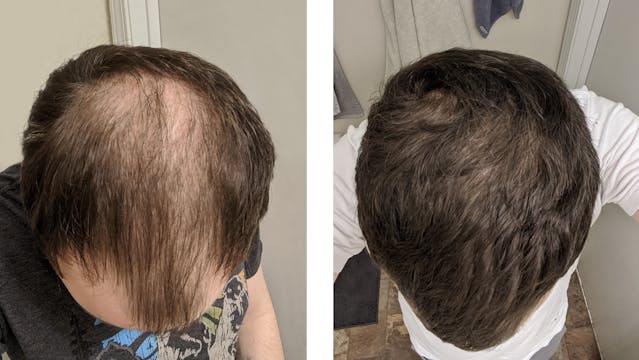Do you remember the last time you ate something? Was it several hours ago or perhaps only just a few minutes ago? We now live in a world where it’s very normal to be eating all of the time. We eat at our desks whilst working, we snack whilst watching TV, we eat something whilst on the train and we can even find ourselves eating whilst walking somewhere. However, studies now suggest that perhaps all of this continuous eating isn’t great for our health or our waistlines. Research indicates that we could benefit from giving our bodies a bit of a break from food.
What is intermittent fasting?
Intermittent fasting describes the process of not eating or only eating limited amounts on certain days or at certain times of each day. There are lots of different types of intermittent fasting and some examples of popular types include:
- Time-restricted feeding (such as 16:8): this is where all meals/food/calories are consumed within a limited window each day (for example within 8 hours in the day, with no meals/food/calories being consumed in the other 16 hours). Some people may implement time-restricted feeding with a shorter 12-hour fasting period and others may opt for longer fasting windows such as 18 hours.
- 5:2 intermittent fasting: this is where 5 days of the week there are no restrictions on eating but then for 2 days in the week, a restricted amount of calories is consumed (for example only 500 calories are consumed).
- Alternate day fasting: this is where every second day there are no restrictions on eating but then no or limited calories are consumed on other days.
- Food-free days/periods: this can involve long periods of fasting such as going 24 hours or several days without eating or consuming any calories (and this is usually carried out under medical supervision).
Intermittent fasting is just the practice of giving your body a bit of a break from food and drink. Typically the only things you would consume during a fast are calorie-free drinks such as water, herbal teas or black coffee. You are technically fasting overnight whilst sleeping. So fasting is a perfectly natural and normal thing for us to do. However, most people will only fast overnight for 8-10 hours. Research suggests that the benefits of fasting arise from a 12-hour fasting window or longer.
3 intermittent fasting benefits:
1. It can support your weight loss journey
Insulin is the hormone that our body produces when we eat (especially when we eat carbs or protein). When we have insulin in our system, our bodies use or store energy that we consume rather than allowing us to use our fat stores for this energy. This is why, if you are constantly eating, your body is constantly in store-fat-mode rather than burn-fat-mode. In order to allow your body to shed excess weight, you need to give your body some time where it is insulin-free. You can achieve this by giving your body a break from food and introducing a gentle period of fasting. It can be a good idea initially to just aim for a 12-hour fasting window (e.g. eat between 7am and 7pm each day) and then gradually build this up to perhaps a 14, 16 or 18-hour fasting window. By giving your body a break from food, you are allowing your body to access its fat stores for energy.
2. It can improve your long-term health (including your blood sugar levels, gut health, hormones and more)
The benefits of intermittent fasting don’t stop at weight loss. Giving your body a break from food can have a positive impact on your long-term health too. Research suggests that fasting may improve how we age and decrease our risk of diseases such as cancer, diabetes and other chronic and metabolic conditions. Fasting may also be beneficial for our gut health. So giving your body some time off from food can have real benefits for your body, health and how you age.
3. It can teach you about your eating patterns and hunger signals
Sometimes it takes periods of not eating to start to tune into your hunger signals. If we are constantly eating throughout the day we may never notice when we are hungry and when we are full or satisfied. However, giving your body a break from food allows you to realise when you are feeling physically hungry and to respond to these signals (rather than eat because you are stressed, sad, down or bored). Aiming not to eat for a certain period of the day can also make you more aware of your eating patterns and allow you to get into more of a routine around food.
Whilst intermittent fasting can be a beneficial tool for weight loss and also for your long-term health, there are some risks to using this tool that you should be aware of.
3 intermittent fasting risks:
1. It could encourage you to choose unhealthy foods
When you’ve decided to fast for certain hours in the day or on certain days, there can be the temptation to then allow yourself to eat whatever you want to in your eating window. This can, however, be unhelpful for both your waistline and your long-term health. As you’re eating in a smaller window, it’s even more important that you’re giving your body the nutrition and nutrients that it needs during these periods. If your goal is to lose weight, then you do also need to be cautious about how much you’re eating. Whilst fasting is a very helpful weight loss tool, it will be ineffective if during your eating windows you’re gorging on lots of very indulgent, energy-dense foods.
2. It could lead to a binge
Binge eating is a pattern of behaviour where someone eats very large amounts of food in a short space of time and gets to the point of feeling uncomfortably full. One of the biggest drivers of binge eating is food restriction. If you’re taking fasting too far and allow yourself to get very hungry when you do eat, you may end up bingeing or over-eating and this will be unhelpful for your health and your weight loss journey. This is why it may be helpful to choose a gentle form of intermittent fasting. Rather than only aiming to eat 500 calories a day or fasting for an entire day, perhaps just aim to give yourself a 12- 14 hour fasting window. A gentle 12-14 hour fast is much less likely to drive bingeing behaviours. Whilst you may be keen to notice results quickly, the important thing is that the form of intermittent fasting you choose is sustainable and doesn’t lead to obsessive thoughts about food or bingeing behaviours.
3. It doesn’t work for everyone
Everybody is different and this means that whilst one type of intermittent fasting will work for some people, for other people, this same fasting regime will be ineffective. For example, for some, choosing a fasting regime which involves skipping breakfast and eating too close to the time that they go to sleep could be unhelpful. It may have a negative effect on their sleep quality and it may cause some other undesirable consequences such as indigestion and heartburn. For other people, fasting for 16 hours may make them get very hungry and cause them to over-eat and so long periods of fasting may not be helpful for them at all. So whilst intermittent fasting can be a very helpful tool, it’s important to choose your eating window (or the periods that you’re not eating) wisely and by listening to your own body.
The numan take
Intermittent fasting can be a very powerful tool to boost health and wellbeing. However, like all tools, it needs to be used correctly in order to be effective. Gradually teaching yourself to use this tool is probably the best strategy. So perhaps you can start by aiming for a gentle 12-hour daily fast and then work your way up from there.
(If you’re a diabetic taking medication, please work with your doctor if you want to implement any intermittent fasting regime as decreases in your blood sugar levels may mean that you need to reduce your dosage of medication.)







